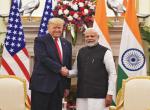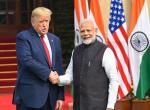The New Southbound Policy
In January 2016, Tsai Ing-wen, leader of Taiwan’s Democratic Progressive Party (DPP) secured 56 percent of the total votes and became the first female president of Taiwan. The cross-strait relation was one of the central issues of the 2016 elections. The overarching foreign policy of the DPP government is to deepen Taiwan’s relation with the US and Japan and diversify its trade with Southeast Asia and East Asia.
In an endeavour to diversify its trade, ever since after coming to power the DPP government has initiated a ‘New Southbound Policy’ to strengthen its relations with Southeast Asia and India. The New Southbound Policy was started in 2016 to make Taiwan less dependent on China and to improve Taiwan’s cooperation with 18 countries (Australia, Bangladesh, Bhutan, Brunei, Cambodia, India, Indonesia, Laos, Malaysia, Myanmar, Nepal, New Zealand, Pakistan, the Philippines, Singapore, Sri Lanka, Thailand and Vietnam). In her inaugural address on 20 May 2016, Tsai Ing-wen said, “We will promote a “New Southbound Policy” in order to elevate the scope and diversity of our external economy, and bid farewell to our past overreliance on a single market.”
In 2016, out of Taiwan’s top 15 trading partners, 9 of them are in the Indo-Pacific region. Taiwan exported goods worth USD 19.6 billion to Japan, USD 12.8 billion to South Korea, USD 3.1 billion to Australia and USD 2.8 billion to India. In 2016, Taiwan increased its annual investment in the ASEAN countries to USD 4.2 billion marking a 73.3 percent increase and making the country the 7th largest source of investment for ASEAN. Notably, with India, the bilateral trade has grown from USD 1.19 billion in 2001 to USD 5 billion in 2016. After initiating the New Southbound Policy at the end of 2016 around 90 companies have set up business operations in India with a total investment of USD 1.4 billion.
As compared to the other countries in the region, Taiwan stands at a ‘crossroads’. In the past, they had shown interest in joining the Trans Pacific Partnership, Asian Infrastructure Investment Bank and Regional Comprehensive Economic Partnership. In recent times, they are keen to expand economic ties with the countries in the Indo-Pacific region. On 13 December 2017, at an international seminar in Taipei, Vice President Chen Chien-jen praised the Indo-Pacific Strategy and said, "We are looking forward to increasing cooperation and trade and to strengthening ties with the Indo-Pacific region by mapping out a regional role for Taiwan through the New Southbound Policy," The statement manifests Taiwan’s willingness to play a larger role in the region.
Taiwan-US Relations
The US is one country that can enable Taiwan to play a more active role. But will the US give Taiwan enough space to carve out a larger identity for itself displeasing China? The Taiwan Relations Act (TRA) of 1979 is the foundation of US-Taiwan relationship. For the first time, the National Security Strategy document 2017 has specifically spelt out the US commitment to Taiwan. It states, “maintain our strong ties with Taiwan in accordance with our ‘One China Policy, including our commitments under the Taiwan Relations Act to provide for Taiwan’s legitimate defense needs and deter coercion.”
On 9 January 2018, the Foreign Affairs Committee of the United States passed two bills to “strengthen the critical US-Taiwan partnership”. The two bills are the Taiwan Travel Act and a bill to support Taiwan’s inclusion in the World Health Organization (WHO). The travel bill aims to encourage visits between the United States and Taiwan, while the second bill aims to counter “harmful and unacceptable” efforts to undermine Taiwan’s inclusion in the WHO.
Besides this, the US signed an Act and announced sales of arms to Taiwan. On 12 December 2017, Donald Trump signed the National Defence Authorization Act (NDAA) of the United States for 2018. On the Taiwan issue, there are several provisions for the strengthening of the defense partnership, including recommendations that Taiwanese military forces be invited to participate in military exercises, such as the ‘Red Flag’ exercises, advanced aerial combat training drill, and to consider ‘re-establishing port of call exchanges’ between their navies. On 30 June 2017, the US State Department announced the arms sales package worth USD 1.4 billion to Taiwan. The deal comprises of seven items, including technical support for early warning radar, anti-radiation missiles, torpedoes and components for SM-2 missiles. This is the first such sale under the Trump administration.
According to Arms Control Association, from 1980 to 2010, arms agreement worth USD 21.21 billion were reached between US and Taiwan. Notably, arms worth USD 25.39 billion were delivered. Besides this under Barack Obama, arms sales worth USD 1.83 billion to Taiwan was approved. The United States justifies these sales under the Taiwan Relations Act, which declares that the United States "will make available to Taiwan such defense articles and defense services in such quantity as may be necessary to enable Taiwan to maintain a sufficient self-defense capability."
It may be recalled, Tsai Ing-wen gave a congratulatory phone call to Donald Trump even before he formally became the president. Additionally, an eleven-member Taiwanese delegation, led by former premier and ex-ruling party leader Yu Shyi-Kun, attended the swearing-in ceremony of the Donald Trump, on the 20th of January 2017, drawing sharp criticism from China. Until now Tsai Ing-wen has made two stop over visits to the US. The increasing US assistance to Taiwan indicates that the US will support Taiwan to maintain its unique identity. However, until now the US has not flagged the issue of Taiwan’s membership/role in the Indo-Pacific region.
The other US allies in the Indo-Pacific region, Japan and Australia, are already on the same page with the US. At the moment, the most pressing challenge for the US is the North Korean nuclear issue for which it needs the support from China. Evidently, by supporting Taiwan at different levels the US is trying to send a message to China that if it doesn’t put enough pressure on North Korea, the US can use the Taiwan card against it.
Chinese Reaction
China has criticized each of these developments and time and again asked the US to stick to the ‘One-China’ policy. China has also been trying to limit the diplomatic space of Taiwan. On 13 June 2017, Panama established diplomatic relations with China and decided to sever its ties with Taiwan. Panama is the second country after Sao Tome and Principe (Western African country) to break ties with Taiwan since the DPP government took over. President Tsai Ing-wen condemned China for being behind Panama’s decision. Evidently, this is China’s larger strategy of isolating Taiwan and indirect pressure to accept ‘one China’ policy. Meanwhile, the US is helping Taiwan restore its position in the region by advocating its rightful place in the World Health Assembly and World Health Organisation.
India-Taiwan: Need for Engagement
Geopolitically, the Indo-Pacific region is taking shape. If Taiwan becomes more active in the region, its economic and other unofficial relations with India are likely to be good. In February 2017, a three-member Taiwanese parliamentary delegation visited India. The visit was strongly opposed by China. The hosting of the delegation indicates a shift in Indian Foreign policy towards China vis–a-vis One-China policy. Often, India has indicated that China should respect One-India policy if it wants the same. In September 2014, External Affairs Minister Sushma Swaraj said, “For India to agree to a One-China policy, China should reaffirm an One-India policy.” "When they raised with us the issue of Tibet and Taiwan, we shared their sensitivities. So, we want they should understand and appreciate our sensitivities regarding Arunachal Pradesh.” Clearly, she indicated that China should accept that Arunachal Pradesh is a territory of India and stop referring it as “South Tibet”. Until now, China has disregarded India’s proposal.
Post-Doklam, the India–China relations are going through a strained phase. Perhaps at this juncture, India should start engaging with Taiwan more frequently. Further, India can also support Taiwan in getting its due place in WHO. Notably, Tsai Ing-wen has already said, “it is natural choice for us to step up overall relations with ASEAN and India.”
(Views expressed are of the author and do not necessarily reflect the views of the VIF)
Image Source: http://taiwanflag.facts.co/taiwanflagof/taiwanflag.php









Post new comment